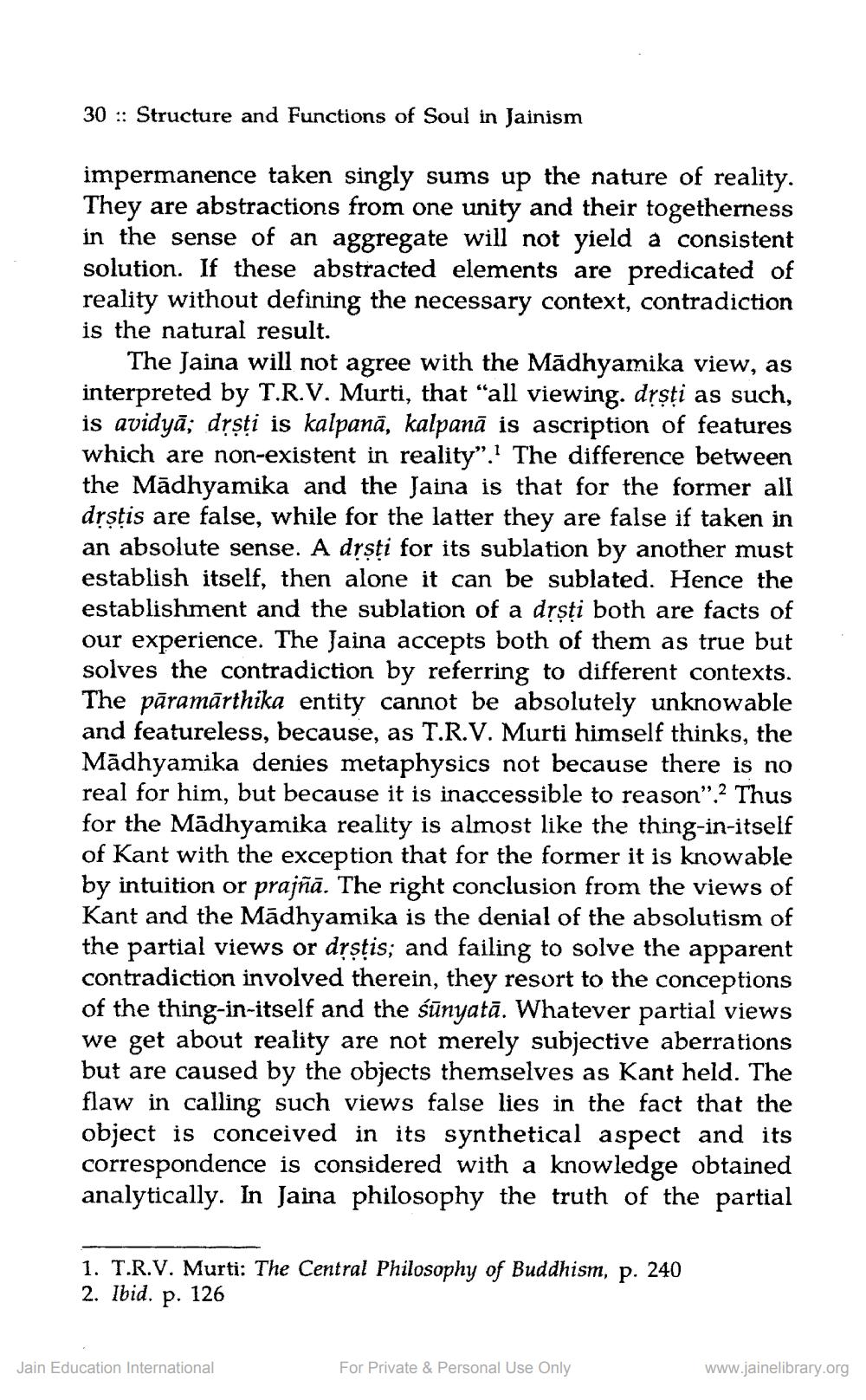________________
30 :: Structure and Functions of Soul in Jainism
impermanence taken singly sums up the nature of reality. They are abstractions from one unity and their togetherness in the sense of an aggregate will not yield a consistent solution. If these abstracted elements are predicated of reality without defining the necessary context, contradiction is the natural result.
The Jaina will not agree with the Mādhyamika view, as interpreted by T.R.V. Murti, that “all viewing. drsti as such, is avidyā; drsti is kalpanā, kalpanā is ascription of features which are non-existent in reality”.! The difference between the Mādhyamika and the Jaina is that for the former all drstis are false, while for the latter they are false if taken in an absolute sense. A drsti for its sublation by another must establish itself, then alone it can be sublated. Hence the establishment and the sublation of a drsti both are facts of our experience. The Jaina accepts both of them as true but solves the contradiction by referring to different contexts. The pāramārthika entity cannot be absolutely unknowable and featureless, because, as T.R.V. Murti himself thinks, the Mādhyamika denies metaphysics not because there is no real for him, but because it is inaccessible to reason”.2 Thus for the Mādhyamika reality is almost like the thing-in-itself of Kant with the exception that for the former it is knowable by intuition or prajñā. The right conclusion from the views of Kant and the Mādhyamika is the denial of the absolutism of the partial views or drstis; and failing to solve the apparent contradiction involved therein, they resort to the conceptions of the thing-in-itself and the sūnyatā. Whatever partial views we get about reality are not merely subjective aberrations but are caused by the objects themselves as Kant held. The flaw in calling such views false lies in the fact that the object is conceived in its synthetical aspect and its correspondence is considered with a knowledge obtained analytically. In Jaina philosophy the truth of the partial
1. T.R.V. Murti: The Central Philosophy of Buddhism, p. 240 2. Ibid. p. 126
Jain Education International
For Private & Personal Use Only
www.jainelibrary.org




